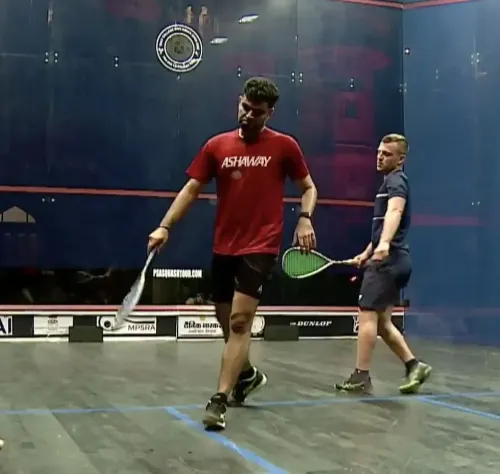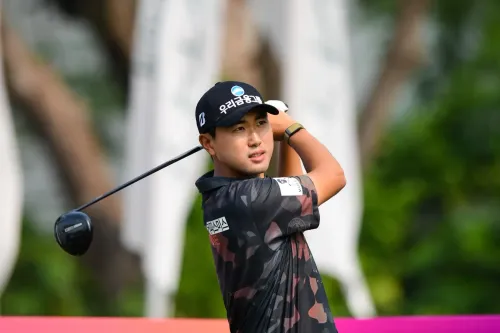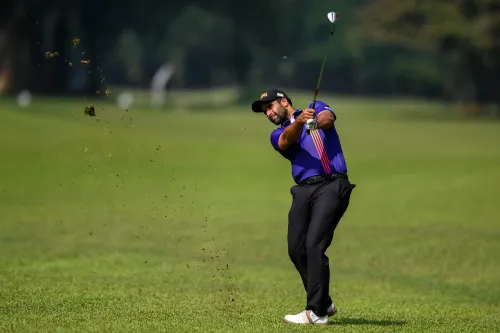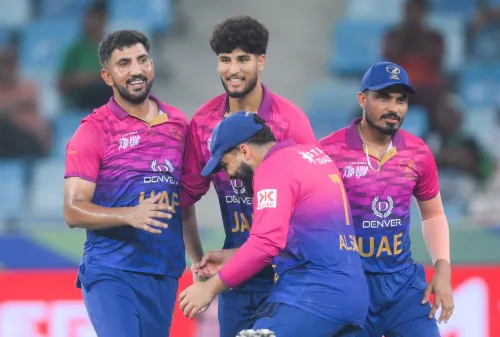Gavaskar: No Equivalence Between Dube and Rana Substitution
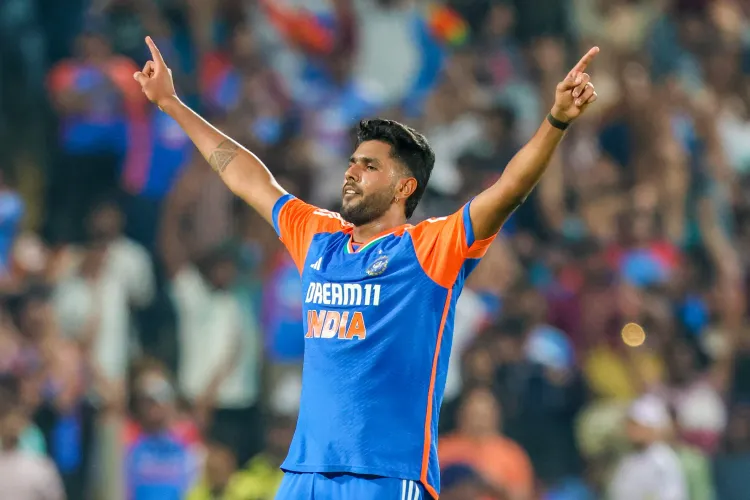
Synopsis
Key Takeaways
- Sunil Gavaskar expressed concerns over the Dube-Rana substitution.
- Gavaskar stated it was not a like-for-like replacement.
- Rana's performance helped India defend their score.
- He criticized the concussion substitute rule as flawed.
- Dube showed resilience after being hit on the helmet.
New Delhi, Feb 2 (NationPress) Renowned Indian cricketer Sunil Gavaskar remarked that there was no equivalent comparison between Harshit Rana and Shivam Dube when Rana was announced as a concussion substitute during the fourth T20I in Pune, suggesting that this decision overshadowed the hosts’ victory in the match.
Dube, an all-rounder, was substituted by Harshit, primarily a fast bowler, after he sustained a concussion while batting in the last over, where he was struck on his helmet by Jamie Overton.
In his T20I debut, Rana achieved figures of 3-33 in his four overs, playing a crucial role in helping India defend a total of 182, winning the match by 15 runs and securing an insurmountable series lead. Jos Buttler, the captain of England, also voiced his concerns regarding the Dube-Rana substitution.
“In the Pune match, Dube batted until the end after being hit on the helmet earlier, indicating he was not actually concussed. Thus, permitting a concussion substitute was inappropriate. A substitute could have been considered only if he had suffered a muscle strain while batting, but that would only have been for fielding purposes, and he wouldn’t have been allowed to bowl,” Gavaskar explained.
“Even with the most liberal interpretation of the like-for-like concept, there was nothing comparable between Dube and Rana. With a touch of humor, one might say they share the same height and have similar fielding abilities.
“Otherwise, there’s no like-for-like comparison regarding their roles. England has valid reasons to feel aggrieved. This Indian team is exceptional and shouldn't see its victories tainted by such decisions,” he expressed in his column for mid-day on Sunday.
India is set to compete in their fifth and final T20I against England at the Wankhede Stadium in Dubai, with the aim to secure a 4-1 series lead. “The transition from a challenging situation to a match-winning score, evidenced by the partnership between Hardik Pandya and Dube, illustrates this team’s resilience and determination to fight until the end.
“Had Rana not taken three wickets and England emerged victorious, the substitution would still have been incorrect and should never have been permitted. It has diminished the impact of the victory, and India needs to win in Mumbai to substantiate their status as the superior team,” Gavaskar added.
The ICC’s Men’s T20I playing guidelines, rule 1.2.7, states, “the ICC Match Referee should generally approve a Concussion Replacement Request if the replacement is a like-for-like player whose inclusion does not excessively benefit their team for the remainder of the match.”
Sub-sections 1.2.7.4 and 1.2.7.5 further clarify, “when evaluating if the nominated Concussion Replacement is a like-for-like player, the ICC Match Referee should consider the probable role the concussed player would have had for the rest of the match, alongside the usual role of the nominated Concussion Replacement.”
“If the ICC Match Referee determines that the inclusion of the nominated Concussion Replacement, performing their standard role, would excessively favor their team, the referee may impose conditions on the identity and involvement of the Concussion Replacement as deemed appropriate, aligning with the primary goal of facilitating a like-for-like replacement for the concussed player.”
Gavaskar concluded by stating that the concussion substitute rule is ‘one of the most flawed rules in the sport’. “The concussion substitute, which allows teams to introduce a like-for-like replacement on the field, is among the worst rules in the game. It encourages incompetence.
“If a batter cannot handle a bouncer, gets hit on the helmet, leaves the field, and the team doctor believes they need to rest due to a concussion, then a substitute who performs similar functions can replace them. Firstly, if a player cannot handle a bouncer, they should not be competing at the highest level.
“They should play weekend club cricket and enjoy dominating the bowlers. Secondly, if someone injures a finger or wrist and cannot continue, they are not permitted a like-for-like replacement. Why should one be allowed for a player who is hit on the helmet?” he concluded.

